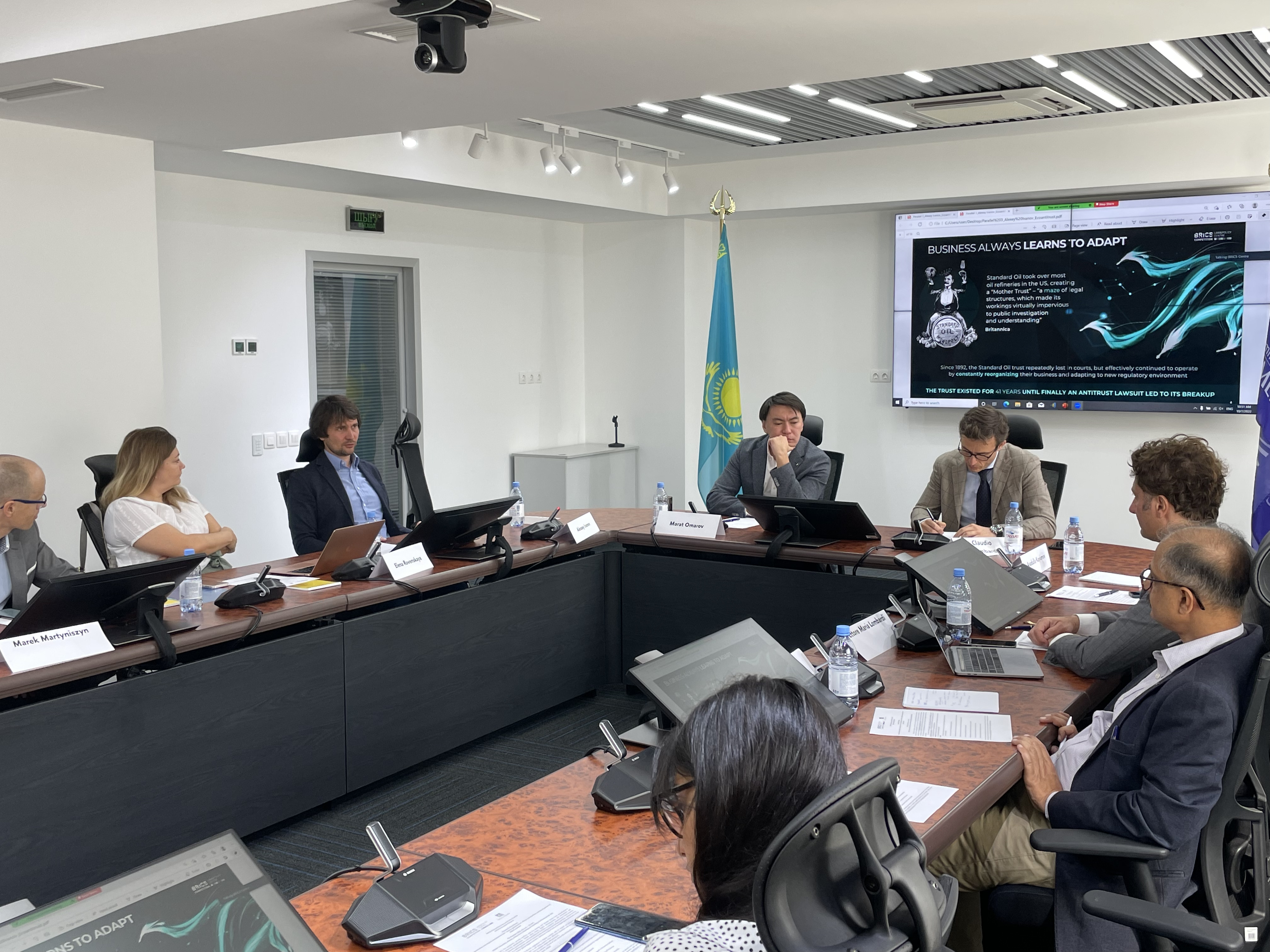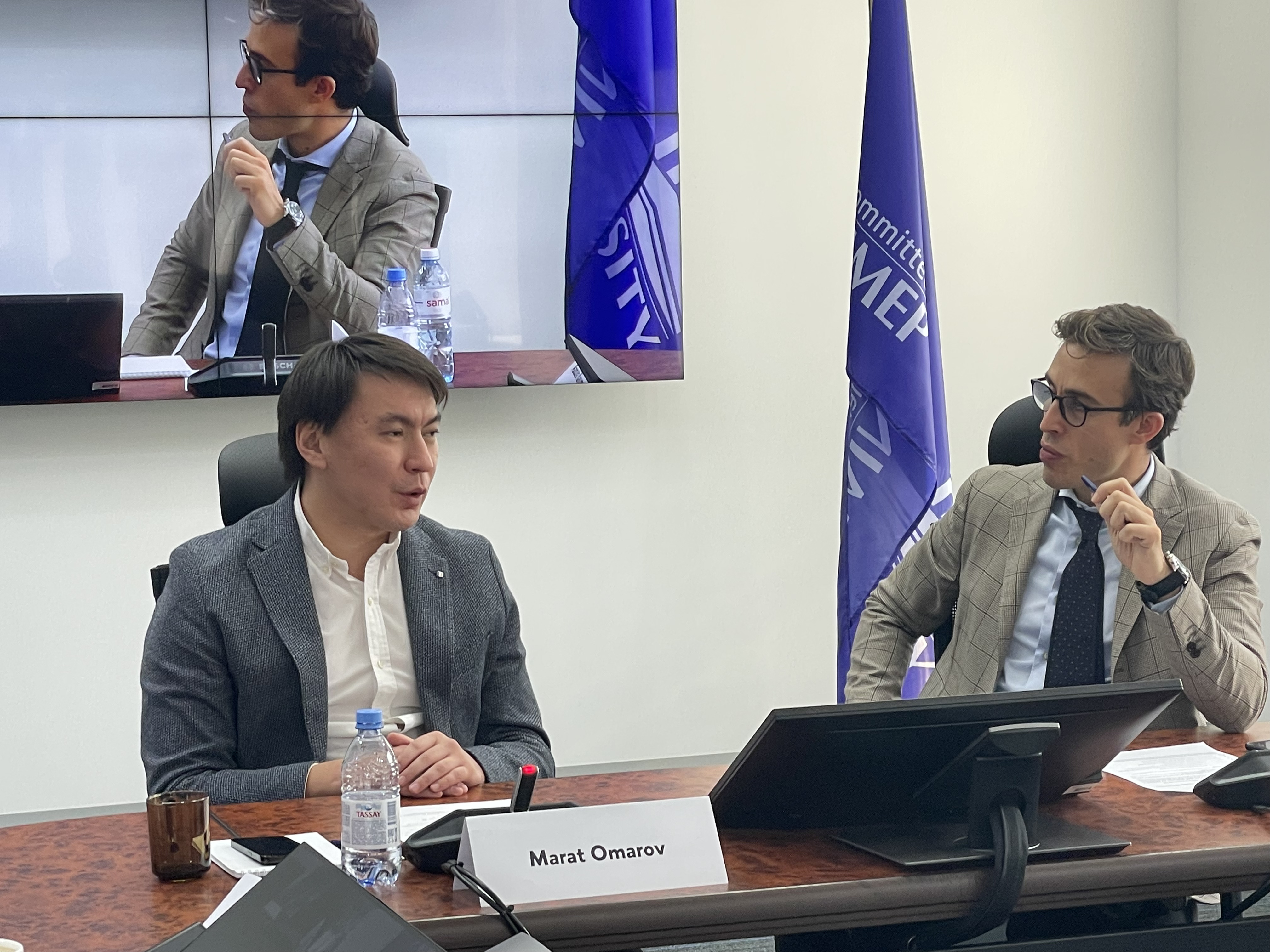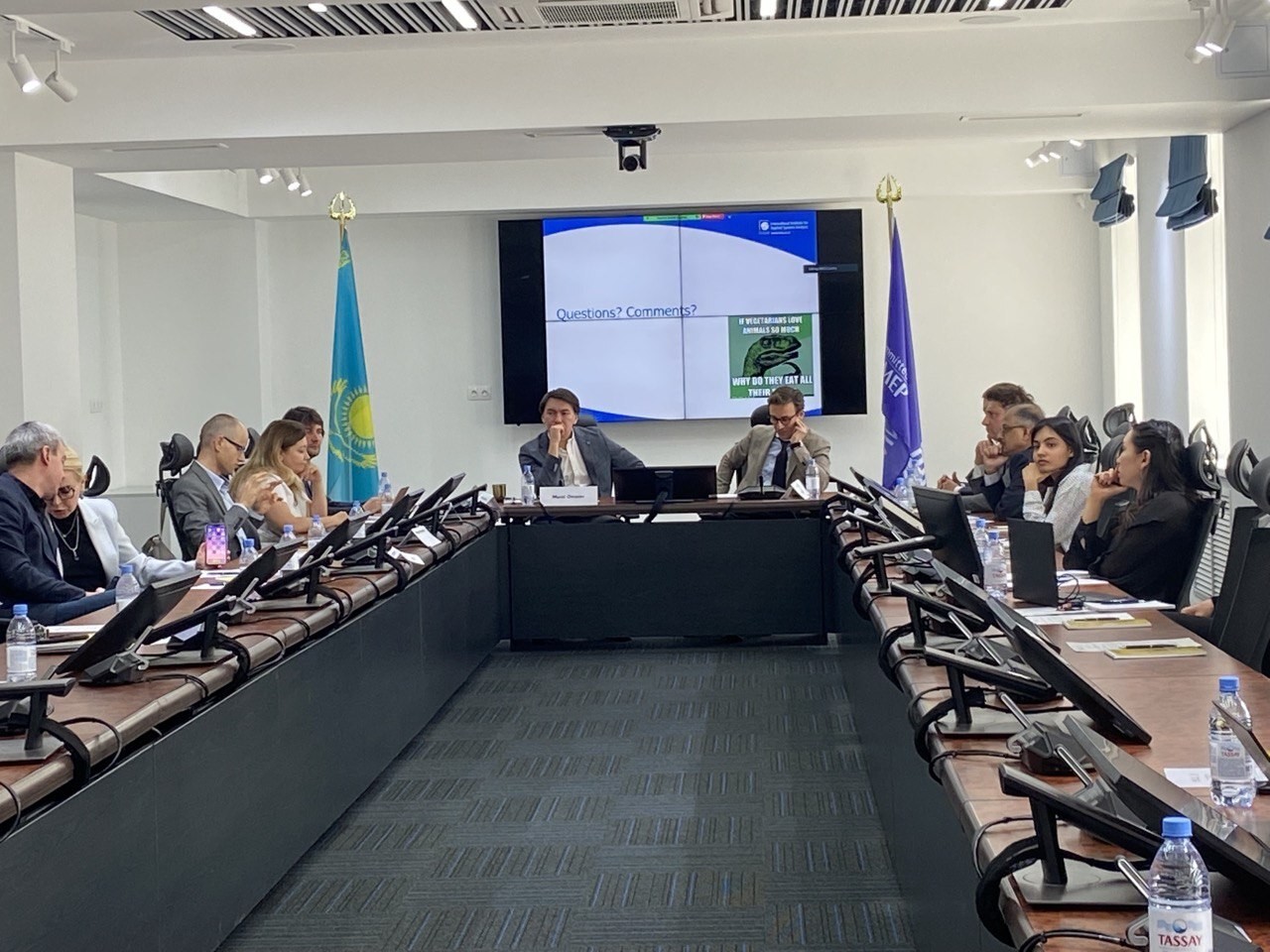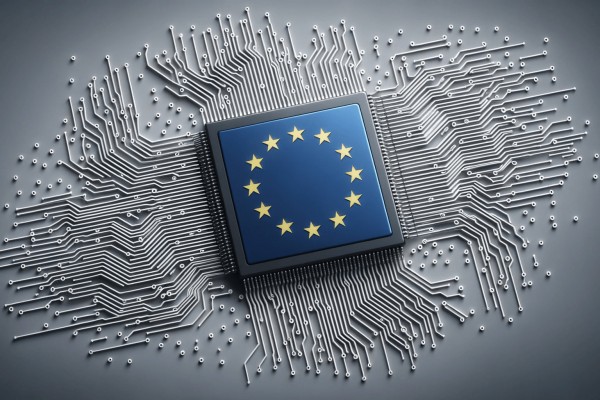On October 7, the International BRICS Competition Law and Policy Centre together with the ASCOLA Eurasia Chapter held an academic workshop on "Fragmentation and Digital Ecosystems: How the Reverse Globalization Affects Competition and Development of Digital Markets" at KIMEP University, Almaty. The event was held as part of the VIII Eurasian Antitrust Forum in Kazakhstan.
Trade wars, the pandemic, armed conflicts, the energy and the climate crises have exacerbated a tendency towards reversing globalization. Global value chains, digital infrastructures and ecosystems are adapting to trends towards protectionism and localization of services.
At the same time, growth of the global digital economy continues steadily as a few digital giants conquer more markets, noted Dr Claudio Lombardi, Lecturer, School of Law, University of Aberdeen / Director, Eurasian Center for Law, Innovation and Development, KIMEP. He opened the meeting by inviting experts to discuss the regulation in digital markets and its effects on competition in times of economic turbulence.
Alexey Ivanov, Director of the BRICS Competition Law and Policy Centre, presented to the audience the concept of ecoantitrust — a comprehensive approach to the analysis and regulation of digital platforms, which is based on analogies with natural ecosystems.
Digital platforms of the 21st century are flexible ecosystems, while the methods of antitrust regulators are mechanistic and still based on outdated approaches of the industrial age. The fight of competition agencies in different countries against digital monopolies is fragmented and therefore ineffective.
Ecoantitrust offers a holistic approach to regulation. Natural ecosystems live in cycles, and it is important for companies to understand where they stand in the cycle in order to determine their business strategy. Regulators must also take into account the cyclical nature of digital ecosystems, their dynamic nature and their many internal connections.
"To achieve common goals, we must speak a 'common regulatory language,' just as we established a common ground on climate change and biodiversity,"
Alexey Ivanov is convinced.

Elena Rovenskaya, Program Director of the International Institute for Applied Systems Analysis (IIASA), spoke in more detail about the structure of digital ecosystems. She suggested to address the theory of complex adaptive systems (CAS) which lies at the heart of ecoantitrust and considers digital platforms as complex systems of various levels, each of which has inside itself a specific set of developing elements. Ecoantitrust similarly helps us look at digital ecosystems not as machines of the industrial age, but as living organisms.
"Understanding digital platforms through the metaphor of natural ecosystems gives a more adequate perception of the structure of this business,"
said Elena Rovenskaya.
The financial systems of the mid-2000s were diagnosed as robust and fragile at the same time — this dualism, a property exhibited by other complex adaptive systems, such as tropical rainforests. Under stress, such ecosystems can become even more fragile, which could lead to a full-blown crisis like the one in 2008, Elena warned.
"To prevent this, it is time to abandon the regulation of digital platforms by industrial methods and turn to the concept of complex adaptive systems."
Marek Martyniszyn, Professor of the School of Law, Queen’s University Belfast, noted that under conditions of reverse globalization, when military conflicts, energy crisis and pandemics occur simultaneously, the issue of food security becomes acute for states, and protectionist measures become relevant again. It is important not to stop interacting and not to lose confidence in each other in a crisis situation of disruption of customary ties, the expert stressed. He recalled that recently there have been talks about excluding Russia from the forum and other ASEAN mechanisms (the organization brings together Indonesia, Malaysia, Singapore, Thailand, the Philippines, Brunei, Vietnam, Laos, Myanmar and Cambodia) due to Russia's military actions in Ukraine, but in the end it was decided that the forum, on the contrary, would become a platform for dialogue.
The high growth of digital platforms in e-commerce in Kazakhstan shows an increase in market concentration, said Marat Omarov, Chairman of the Agency for Protection and Development of Competition of the Republic of Kazakhstan. Most antitrust agencies around the world are working on adapting competition policy for digital giants to support domestic businesses. There are individual cases in the digital markets and in Kazakhstan.
"We understand that today's regulatory methods are a bit outdated, it's time to improve the tools of antitrust analysis in relation to the digital economy and introduce new factors to be taken into account when assessing the position of digital platforms. A wide range of stakeholders, including academic experts, practitioners and government officials, should be involved in the discussion of issues related to digital platforms,"
- explained Marat Omarov.

Continuing the theme of digital platforms that have only increased their power in the pandemic, Marina Amelina, Government relations Director at Baring Vostok, recalled the first FAS case against Google in 2015. At that time, Yandex accused the IT giant of abusing its dominant position in the market because of the ban on pre-installation of Yandex services on mobile devices Fly, Explay and Prestigio. The regulator for the first time had to deal with a major digital platform, and the process was difficult, but today, in contrast to the antitrust authorities of other jurisdictions, FAS is notable for the high speed of cases, said Marina Amelina.
Digital ecosystems are set up in such a way that they inevitably begin to strengthen their advantages — for example, by giving preference in a search or first place in the search results on the platform to their own products and services. In this sense, the memorandum on the openness of digital markets, signed in February 2022 by the FAS, marketplaces and the largest IT companies in Russia, is noteworthy. The memorandum, in particular, implies that the signatories will explain how search rankings occur on their resources. In addition, at the end of 2021, the regulator together with market participants defined the basic principles of fair behavior in the digital markets. These include reasonable openness of digital platforms, neutrality of treatment of different sides of the market (including competitors), ensuring the rights of platform users, etc.
"This system of arrangements is good in that violations can be monitored not only by the consumer and the regulator, but also by the market itself,"
said Marina Amelina.
Ujjwal Kumar, Associate Director, CUTS International; Asadulla Kayumov, First Deputy Chairman, Antimonopoly Committee of the Republic of Uzbekistan; Ettore Lombardi, Professor, School of Law, University of Florence also took part in the discussion.
At the end of the seminar, the experts answered questions from the audience.




